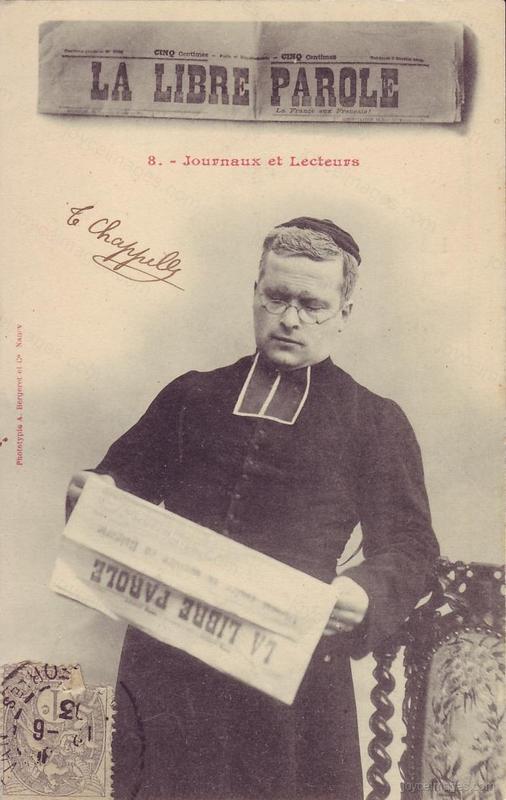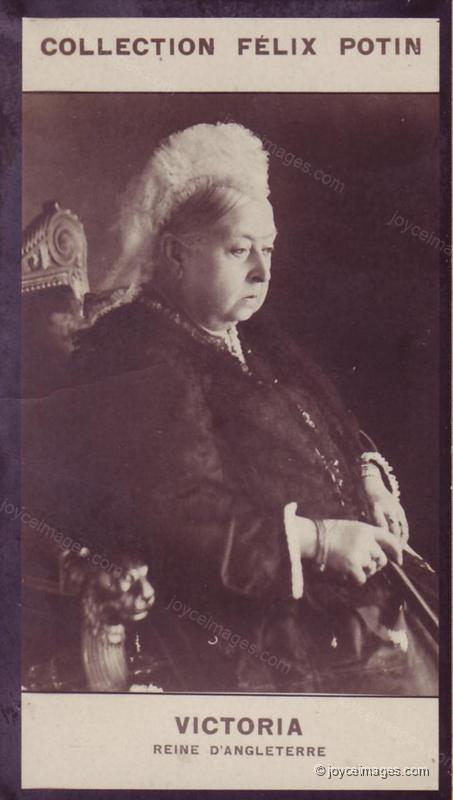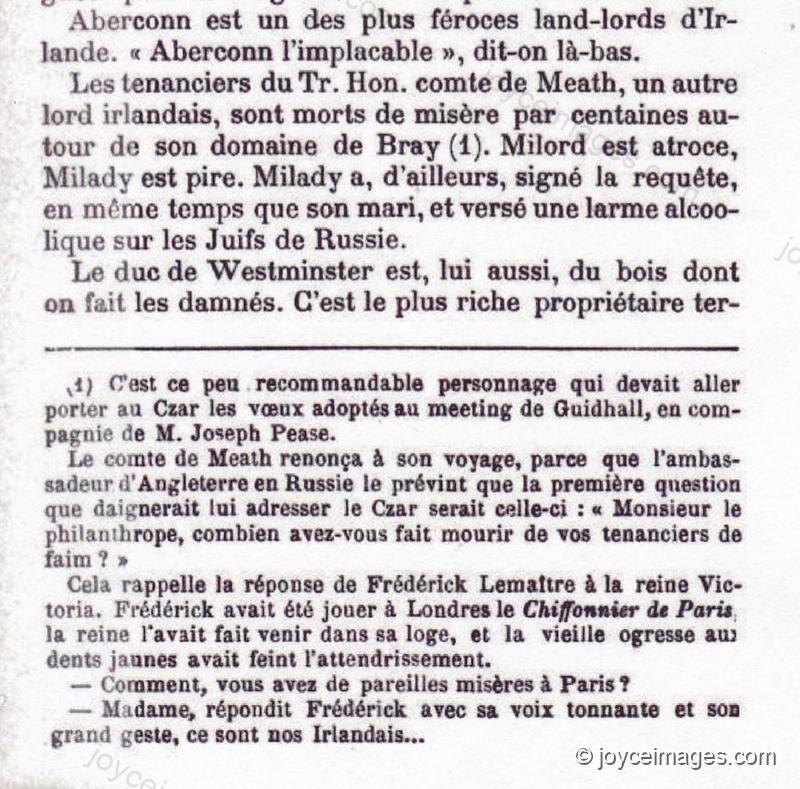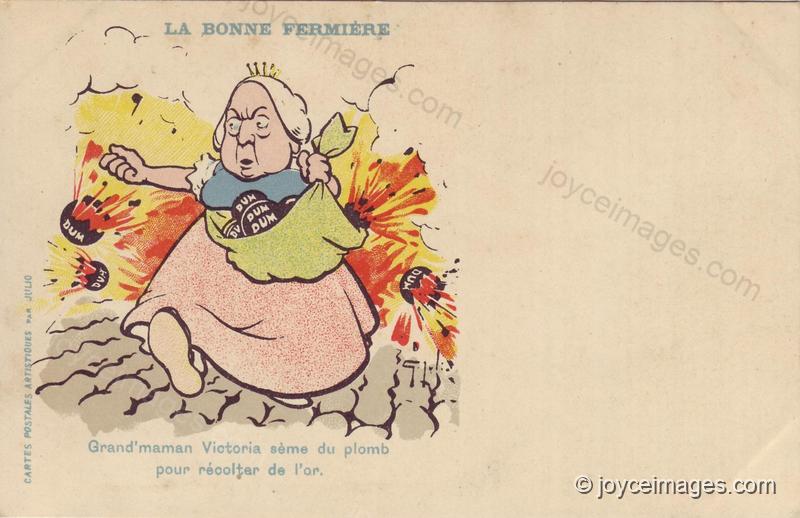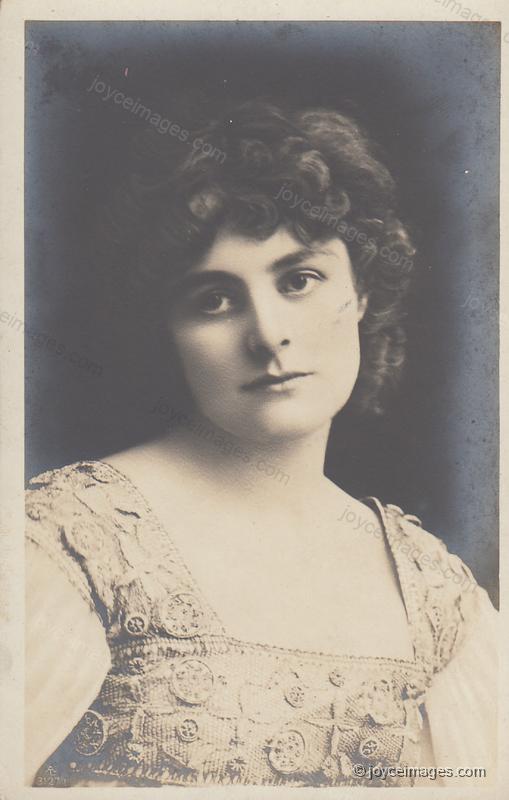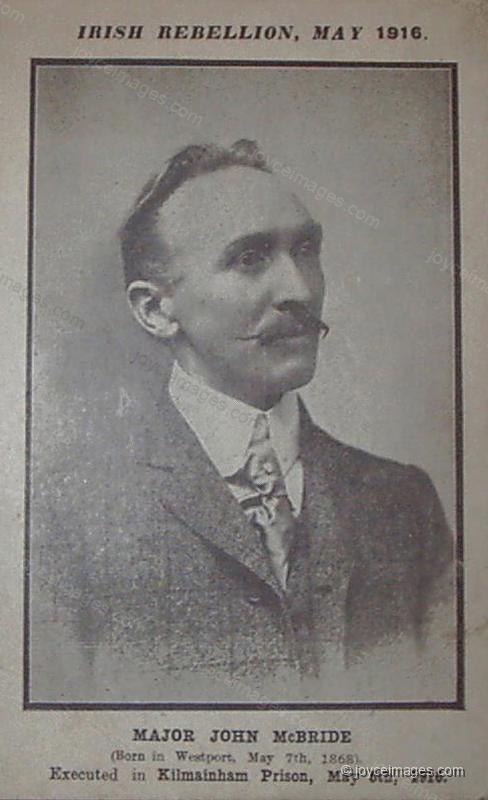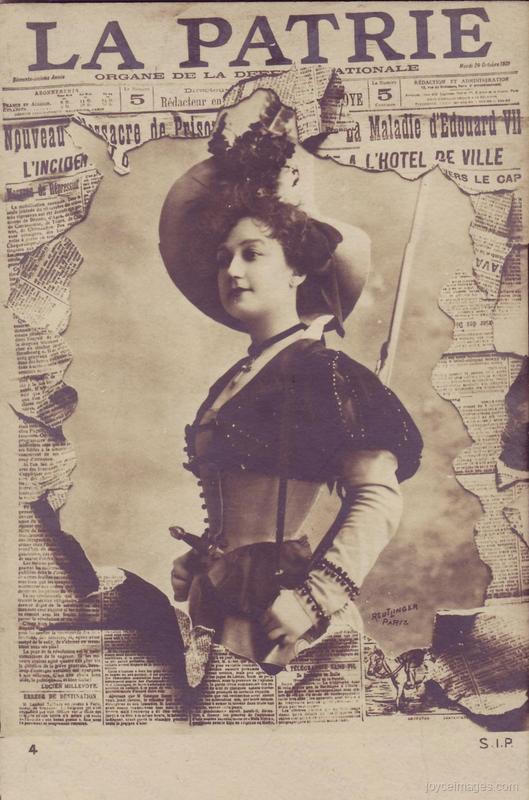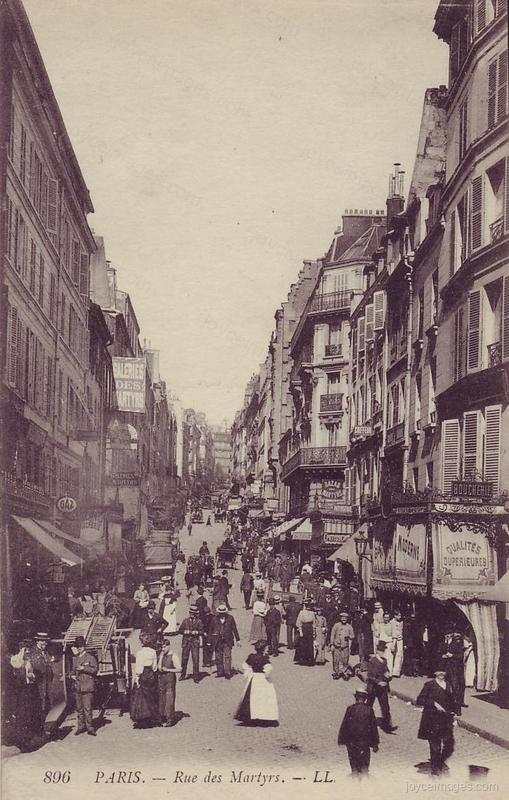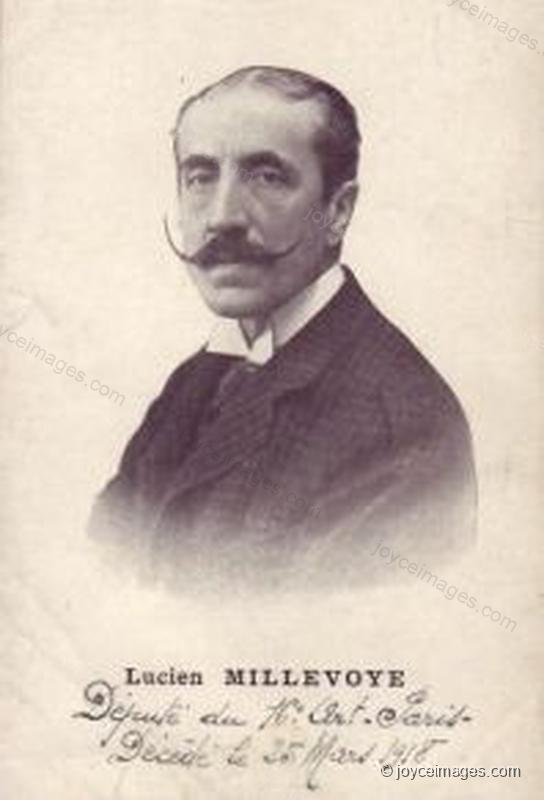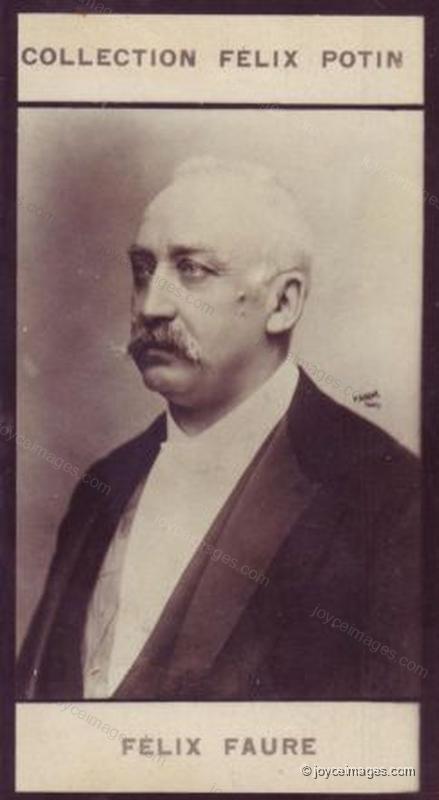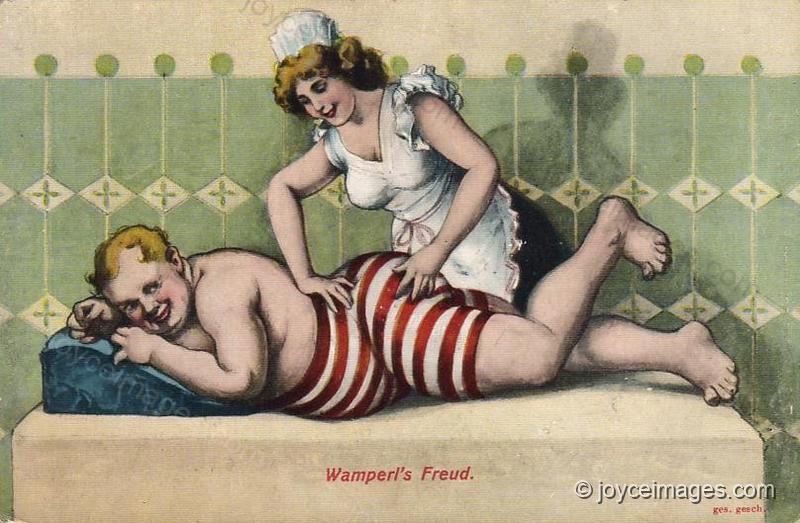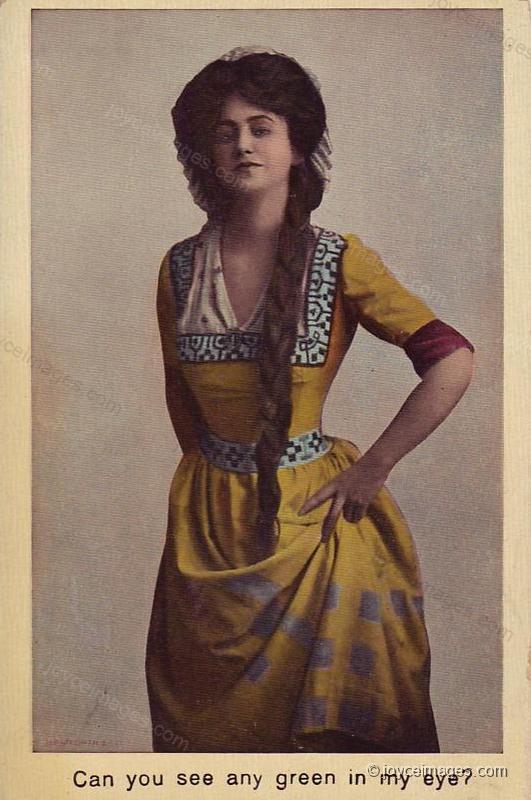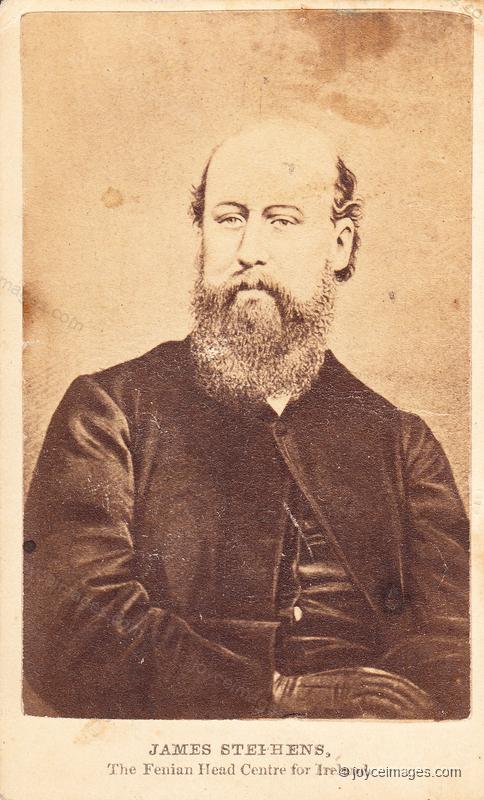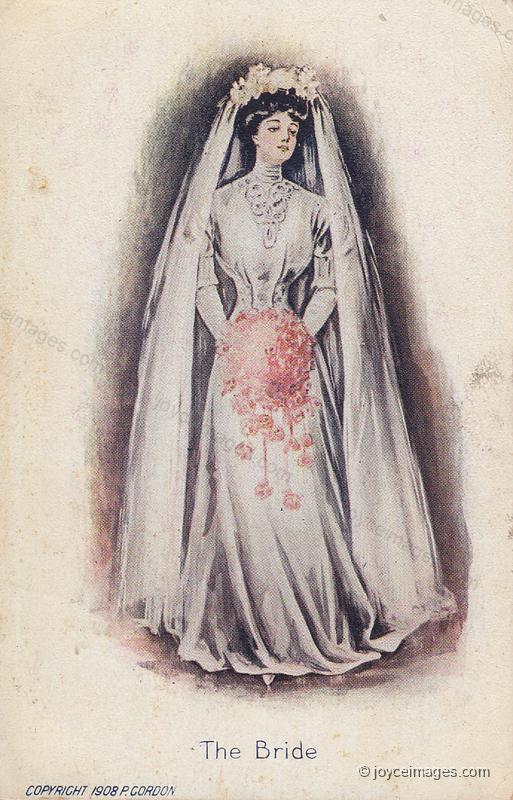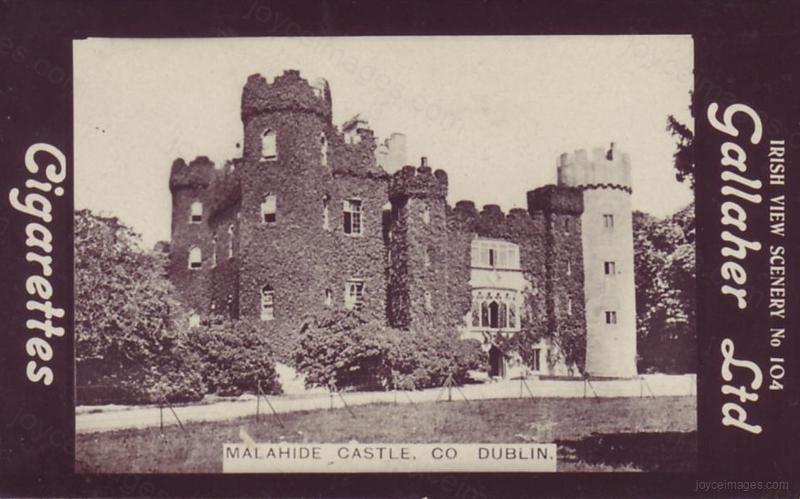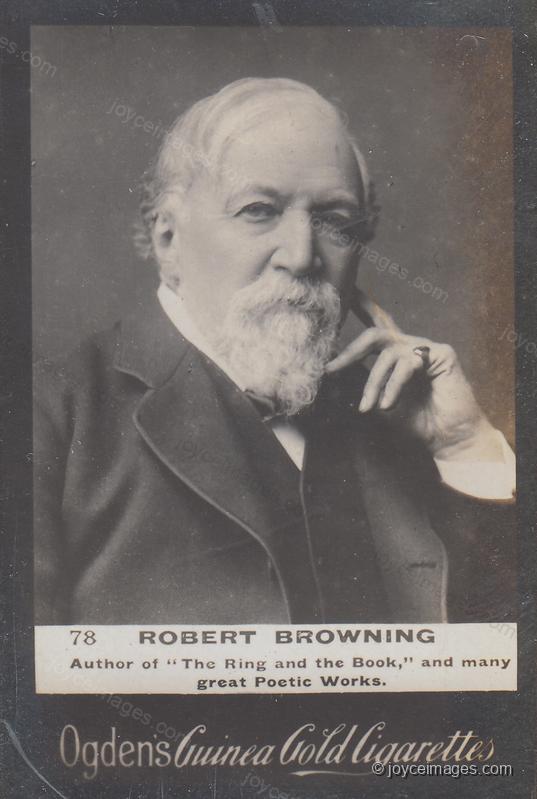"famous journalist, Drumont," (U3.231)
Edouard Drumont wrote on a variety of topics for several French publications, including La Liberté (news, literary, legal and art columns, 1874 - 1886), Revue de la Révolution (history), Le Bien Public, L'Univers, Le Nain Jaune, La Presse theatrale, Chronique Illustrée, Le Contemporain, La Revue de France, Le Gaulois, Le Petit Journal (art criticism), etc. He then founded (1892) his own newspaper La Libre Parole. Its motto was 'La France aux Francais' (= France for the French). He was encouraged (and financed) in this endeavour by a Jesuit, Father du Lac. This PC (1903) shows a priest engrossed in La Libre Parole, and is from a series titled 'Newspapers and Readers.'
Edouard Drumont wrote on a variety of topics for several French publications, including La Liberté (news, literary, legal and art columns, 1874 - 1886), Revue de la Révolution (history), Le Bien Public, L'Univers, Le Nain Jaune, La Presse theatrale, Chronique Illustrée, Le Contemporain, La Revue de France, Le Gaulois, Le Petit Journal (art criticism), etc. He then founded (1892) his own newspaper La Libre Parole. Its motto was 'La France aux Francais' (= France for the French). He was encouraged (and financed) in this endeavour by a Jesuit, Father du Lac. This PC (1903) shows a priest engrossed in La Libre Parole, and is from a series titled 'Newspapers and Readers.'
"know what he called queen Victoria? Old hag with the yellow teeth. Vieille ogresse with the dents jaunes." (U3.231)
As discovered by Harald Beck, Victoria is dubbed 'la vielle ogresse aux dents jaunes' in Drumont's book 'Le Testament d'un Antisemite' (Testament of an Antisemite), published in Paris in 1891. On page 162, Drumont denounces the cruelty of landowners towards their Irish tenants. He is reminded of a meeting between Victoria and the French actor Frédérick Lemaitre. Lemaitre had played in London 'Le Chiffonier de Paris' and was called to the Queen's loge. Feigning pity, the old witch with the yellow teeth asked him: "Do you truly have such miserable folk in Paris?" to which he replied with grandiloquence: "Yes madam, they are our Irish."
Expressing similar anti-British sentiment in France during the Boer War, this PC depicts the queen as 'The Good Farmer: Grand'ma Victoria sows lead to harvest gold.'
"Maud Gonne, beautiful woman," (3.233)
Edith Maud Gonne (1865 - 1953) was an English-born Irish revolutionary, feminist and actress, widely admired for her courage and beauty. She was also famous for the passionate love she inspired W.B. Yeats. Maud was the daughter of a colonel in the British Army, and was educated in Paris and Dublin. Her accomplishments are countless. She campaigned for evicted tenants in Donegal, founded the 'Daughters of Erin,' edited 'The Irish Woman,' played the title role in 'Cathleen Ni Houlihan' (1902), and helped start the Abbey Theatre.
Edith Maud Gonne (1865 - 1953) was an English-born Irish revolutionary, feminist and actress, widely admired for her courage and beauty. She was also famous for the passionate love she inspired W.B. Yeats. Maud was the daughter of a colonel in the British Army, and was educated in Paris and Dublin. Her accomplishments are countless. She campaigned for evicted tenants in Donegal, founded the 'Daughters of Erin,' edited 'The Irish Woman,' played the title role in 'Cathleen Ni Houlihan' (1902), and helped start the Abbey Theatre.
In 1903, Maud Gonne married John MacBride, a major of the Irish Brigade, later executed for his part in the Easter Rising (1916).
She campaigned to extend the 1906 Provision of School Meals Act to Ireland, then against the conscription of Irish men into the British Army during WW1. She worked for the White Cross to help the victims of the War of Independence and their families, collected evidence of army and police atrocities in Cork and Kerry, and started (with Charlotte Despard) the Women's Prisoners' Defence League to support republican prisoners. Imprisoned by the Free State government, she was one of 91 women who hunger striked (1923). She published her memoirs 'A Servant of the Queen' (1938). She is buried in Glasnevin Cemetery.
(Image courtesy of Neal Pistole)
She campaigned to extend the 1906 Provision of School Meals Act to Ireland, then against the conscription of Irish men into the British Army during WW1. She worked for the White Cross to help the victims of the War of Independence and their families, collected evidence of army and police atrocities in Cork and Kerry, and started (with Charlotte Despard) the Women's Prisoners' Defence League to support republican prisoners. Imprisoned by the Free State government, she was one of 91 women who hunger striked (1923). She published her memoirs 'A Servant of the Queen' (1938). She is buried in Glasnevin Cemetery.
(Image courtesy of Neal Pistole)
"la Patrie," (U3.233)
'La Patrie' was a French right wing newspaper, edited by Lucien Millevoye. This PC shows the (glamorized) front page, October 29th 1901.
'La Patrie' was a French right wing newspaper, edited by Lucien Millevoye. This PC shows the (glamorized) front page, October 29th 1901.
It is conceivable that Kevin Eagan and Maud Gonne could have met in Paris. Maude Gonne lived there intermittently since a child, before she definitely left in the fall of 1917. She originally started out as an actress, then became active in radical politics. During the 1890s, she had a relationship with the journalist Lucien Millevoye. To be near him, she took an apartment at 61, Avenue de Wagram (16e). Maud changed residence in Paris several times, but always stayed in upscale neighbourhoods (16e & 17e). In parallel, from an office located 6 rue des Martyrs (9e), shown on this PC, she edited 'L'Irlande Libre,' a newspaper that promoted Irish nationalism and was part of the build-up to the centenary of the 1798 rebellion. The first of 18 (+1 special) issues came out on May 1st 1897. With the help of Yeats, Gonne also founded in Paris the 'Association Irlandaise' (= Young Ireland Society) that had offices at the same address, 6 rue des Martyrs.
"M. Millevoye," (U3.233)
Lucien Millevoye (1850 - 1918) was a French journalist and politician. He was the editor of 'La Patrie' and a supporter of Général Boulanger. Maud Gonne had a love affair with him in France (he was married). They had 2 children, Georges Silvère (1890 - 1891) who died of meningitis in infancy, and Iseult Lucille Germaine (1894 - 1954). Back in Ireland, Gonne passed Iseult off as her adopted niece.
Lucien Millevoye (1850 - 1918) was a French journalist and politician. He was the editor of 'La Patrie' and a supporter of Général Boulanger. Maud Gonne had a love affair with him in France (he was married). They had 2 children, Georges Silvère (1890 - 1891) who died of meningitis in infancy, and Iseult Lucille Germaine (1894 - 1954). Back in Ireland, Gonne passed Iseult off as her adopted niece.
"Félix Faure, know how he died? Licentious men." (U3.233)
Félix Faure (1841 - 1899) was President of France from 1895 till his death. He had been unexpectedly elected upon the resignation of President Casimir-Perier. The latter days of Fauré's presidency were embittered by the Dreyfus affair. He died from apoplexy February 16th 1899, rumour says while receiving oral sex from a woman named Marguerite Steinheil.
Félix Faure (1841 - 1899) was President of France from 1895 till his death. He had been unexpectedly elected upon the resignation of President Casimir-Perier. The latter days of Fauré's presidency were embittered by the Dreyfus affair. He died from apoplexy February 16th 1899, rumour says while receiving oral sex from a woman named Marguerite Steinheil.
"The froeken, bonne à tout faire, who rubs male nakedness in the bath at Upsala. Moi faire, she said, tous les messieurs. Not this monsieur, I said. Most licentious custom. Bath a most private thing. I wouldn't let my brother, not even my own brother, most lascivious thing." U3.234)
"Green eyes, I see you. Fang, I feel. Lascivious people.
The blue fuse burns deadly between hands and burns clear. Loose tobacco shreds catch fire: a flame and acrid smoke light our corner. Raw facebones under his peep of day boy's hat." (U3.239)
The blue fuse burns deadly between hands and burns clear. Loose tobacco shreds catch fire: a flame and acrid smoke light our corner. Raw facebones under his peep of day boy's hat." (U3.239)
"Of lost leaders, the betrayed, wild escapes. Disguises, clutched at, gone, not here." (U3.243)
Evokes Robert Browning's poem 'The Lost Leader' addressed to Wordsworth. It includes the lines:
We that had loved him so, followed him, honoured him,
Lived in his mild and magnificent eye,
Learned his great language, caught his clear accents,
Made him our pattern to live and to die!
that may apply as well to James Stephens.
Evokes Robert Browning's poem 'The Lost Leader' addressed to Wordsworth. It includes the lines:
We that had loved him so, followed him, honoured him,
Lived in his mild and magnificent eye,
Learned his great language, caught his clear accents,
Made him our pattern to live and to die!
that may apply as well to James Stephens.
